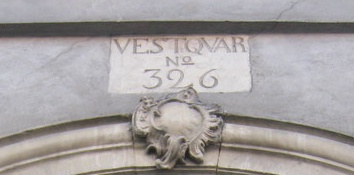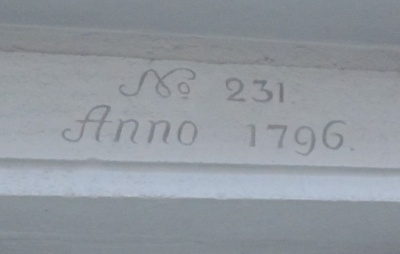Meyrink zur numero conscriptionis, Prag 1913
Der »Verein zur Behebung des Femdenverkehrs« in der Ferdinandstraße vis-à-vis »Platteis«, schräg gegenüber dem Friseur Gürtler, das elfte Haus von Norden, numero conscriptionis 7814478189 b gibt auf alle Fragen bereitwilligst Antwort.
In böhmischer Sprache natürlich.
Meyrink, Gustav: Prag. Eine optimistisch gehaltene Städteschilderung in vier Bildern, in: Ders.: Des deutschen Spießers Wunderhorn. Wien/Köln/Graz: Böhlau, 1987, S. 283291, hier S. 284 (EA 1913; Volltext bei Gutenberg)


